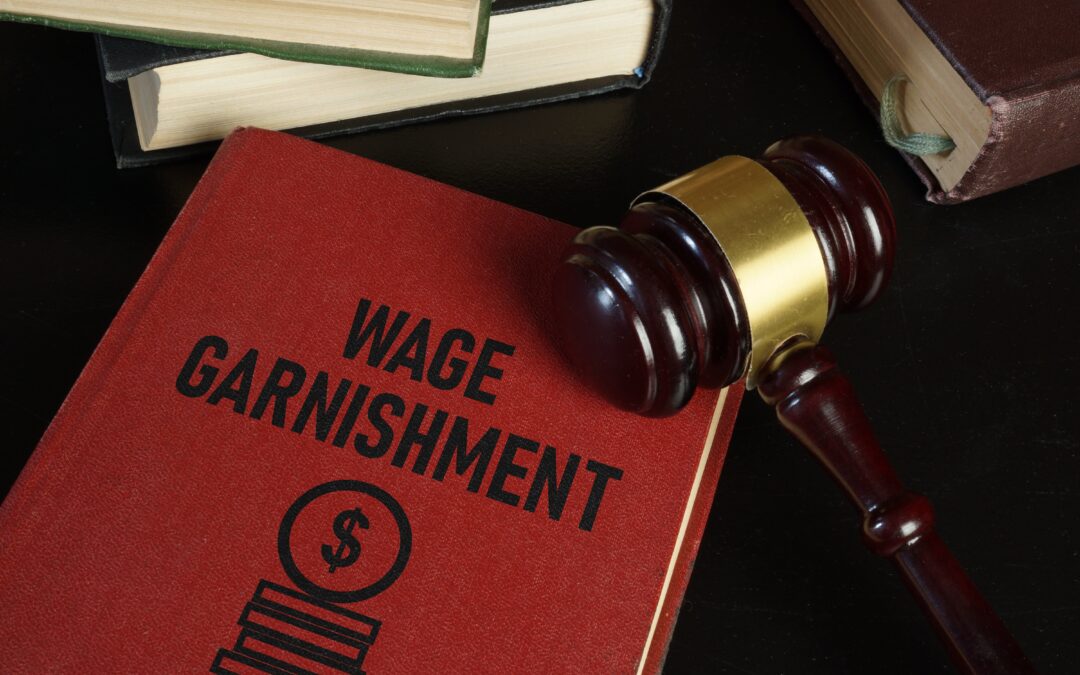If you are reading this, then you probably currently have a wage garnish or are helping someone who does. Also known as check or wage garnishment, this is money taken out of someone’s paycheck to pay off a debt, or most commonly, child support. Let’s examine how a wage garnish affects a person’s credit in the short term and long term and what someone can do to stop it.
Does a Wage Garnish Hurt My Credit Score?
It could, but not always. When someone has a wage garnish, this person is classified as a debtor because garnishments are seen as paying off debts.
A wage garnishment will not usually appear on someone’s credit report if the garnishment is not for credit card debt. Therefore, a wage garnish may not directly affect a person’s chances of getting a car, home, or other loan. Although a wage garnish isn’t invisible to lenders someone is trying to obtain a loan from. Creditors have means of obtaining personal information regarding someone’s finances if a debt needs to be paid off; many are insistent and aggressive. Money owed is money owed, and it is their responsibility to collect unpaid debts.
If a wage garnishment is for a credit card debt, creditors report the delinquent debt to the three nationwide consumer reporting agencies: Equifax®, Experian®, and TransUnion®. Plus, creditors are allowed to add information about how the debt is being collected, such as with a garnishment.
Only a few missed credit card payments could generate a wage garnishment and a person’s credit score will dip. Missed payments, negative information that a creditor adds, and/or a judgment against someone, will remain on credit reports for seven years. There’s nothing a debtor can do to speed up the process, so it can affect someone qualifying for a loan.
Unfortunately, while a credit report may not state information regarding a garnishment, a loan application itself will. Any current liabilities are required to be listed on someone’s loan application; this includes if a person’s wages are currently being garnished. A damaged credit score plus an ongoing garnishment only makes borrowing more difficult for someone already in debt.
The Best Choice is to Avoid a Wage Garnish
The best thing to do to avoid a wage garnish before it happens is to think ahead. If someone thinks they might miss a payment, contact the credit card company immediately to ask about a repayment plan. Financial counseling may also help. Creditors and debt collection agencies are usually willing to accept repayment agreements to dodge further legal expenses and hassle.
How to Stop a Wage Garnish
It’s not impossible, but it is difficult to stop a wage garnishment once a court order has been issued against someone. Depending on what type of debt someone has and the state they live in, the window to legally challenge a wage garnishment can be minimal. Someone in debt needs to act fast if negotiations fail with a creditor or debt collection agency. Look for legal support from a qualified and licensed wage garnishment lawyer in your state.
Legal proceedings also vary by state. A lawyer can tell someone if they can file an exemption claim with the court.
Most importantly, if a person believes their wages are being illegally garnished, a motion can be filed to dissolve the judgment. The debtor may have to go to court to present their case or to respond to an exemption challenge from your creditor. If a person hires a lawyer, they will have a law professional to represent them in court.
Garnishment regulations can be complicated and differ drastically by state. It’s best to work with experienced legal guidance right away.
Get the Best Legal Counsel in the State of Georgia
Garnishment is money taken away from income; this can be a burden for someone already struggling to make ends meet. Getting rid of a wage garnish can help a person get a much-needed loan for school, medical bills, a car, or a home.
Someone’s finances can be affected years into the future if he/she cannot avoid delinquency and challenge a court order for a wage garnish.
It’s time to fight for a wage garnishment that is only making someone’s finances worse. Contact CMC Law today to get set up with expert legal counsel.

